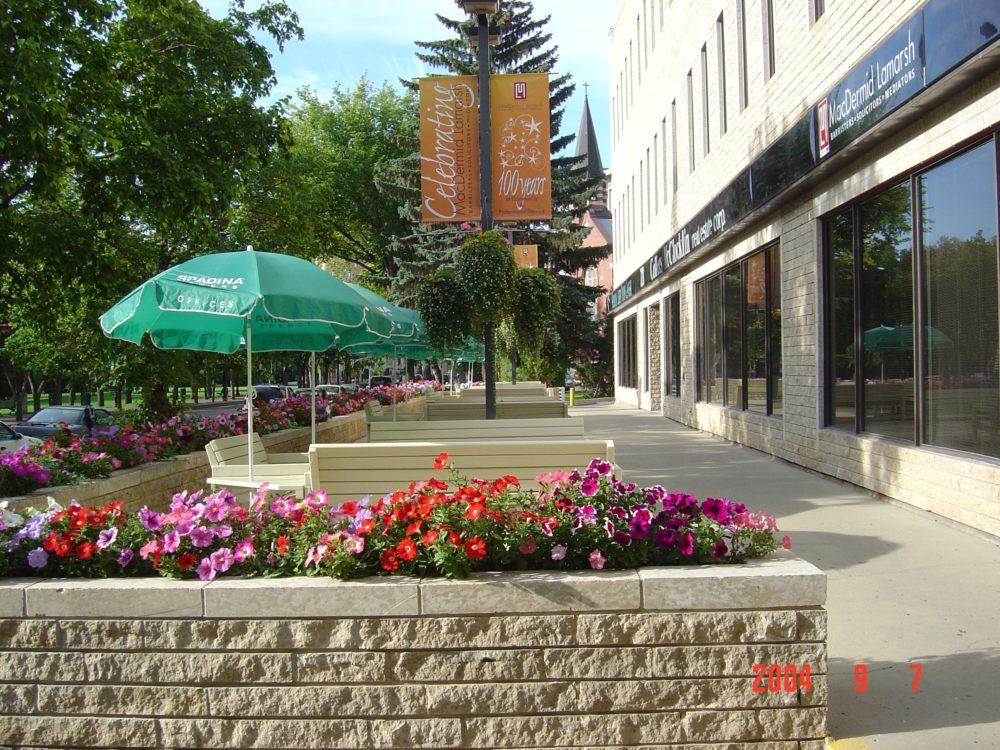As of Sunday, June 28, 2015, the water supply to the front planter, has been left on for two days. This since the caretaker left for the weekend on Friday, June 26th. The planter has drains which have worked very well and discharged this excess supply through the drains and onto the street. During this process, excess water has found its way into the parkade and is very obvious in the two eastside front corners of the parkade. No management or board attention has been made to this negligence for the past several years.
This negligence on the part of the caretaker’s failure to conduct his maintenance responsibilities, has in the past, unfortunately, been blamed upon the failure of the “topping” to the parkade surface structure. It is clear that the planter drains, which have operated continuously over the past two days, have worked just as they should, and no blame to the planter structure is warranted. This ongoing negligence relating to failed attendance on the part of the caretaker to required monitoring of water supply to the front planter, is totally unacceptable. Why has management, and in turn the board, not been monitoring and acting upon this negligence?
An automated irrigation system was installed by the Corporation prior to arrival of the current caretaker. The current caretaker has however, failed to make use of this efficient control system including timing of water usage for the front lawn and planter area. This negligence has resulted in the most obvious and unnecessary flooding into the parkade. Most unfortunately, the board has been quick to blame such leakage as a contributor to a failure of the “topping” over the parkade.
Once again, the position of the board as to “structural” issues of the parkade, have yet to be demonstrated. FAILED ANNUAL MAINTENANCE to the surface area along with negligence as noted above, has resulted in a most flippant and unqualified decision by the board to simply rip up the entire surface area to the parkade and install a new one.
The message to both the board and management: Implement responsible maintenance practises and address all deferred maintenance immediately. Don’t simply expect residents to fund a major capital expenditure (surface replacement), simply because it is an easy excuse to address irresponsible and deferred maintenance management.
Again, it must be repeated, that the board has provided no supporting evidence to their claim that structural damage to the parkade exists. Until a formal engineering report including a full assessment report based upon a fully transparent and REQUIRED destructive testing and analysis, any unit owner cannot be expected to contribute to the cost of any such CAPITAL EXPENDITURE.
Continued rejection on the part of the board to address this and many other deferred maintenance issues, along with their disrespect for the provisions of our Bylaws and the Condominium Property Act that require appropriate unit owner approval, is not acceptable by those who pay for the majority of such illegitimate expenditures, that being our residents.
